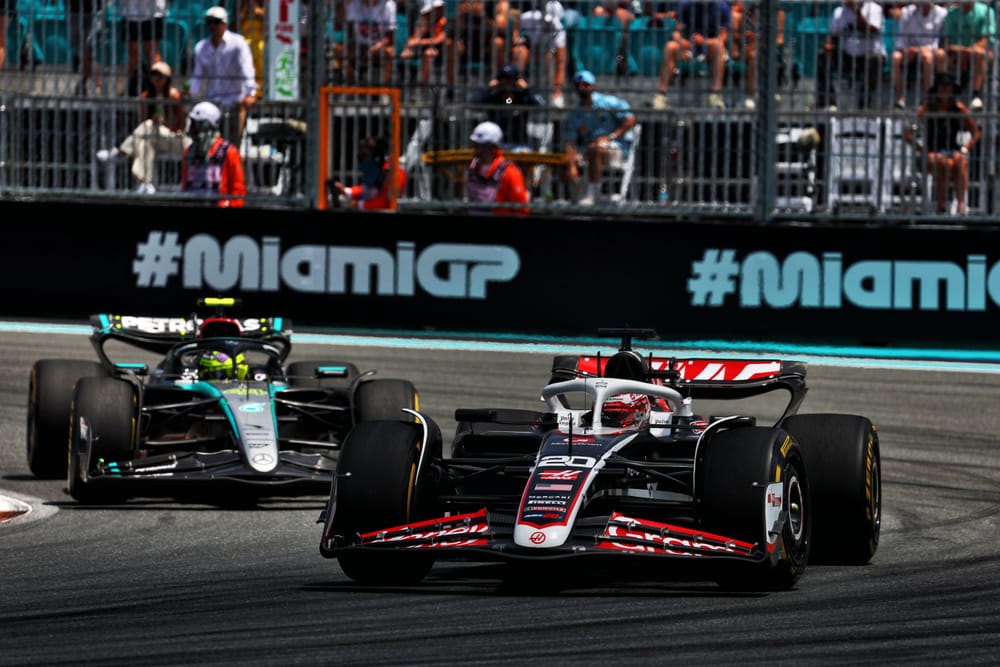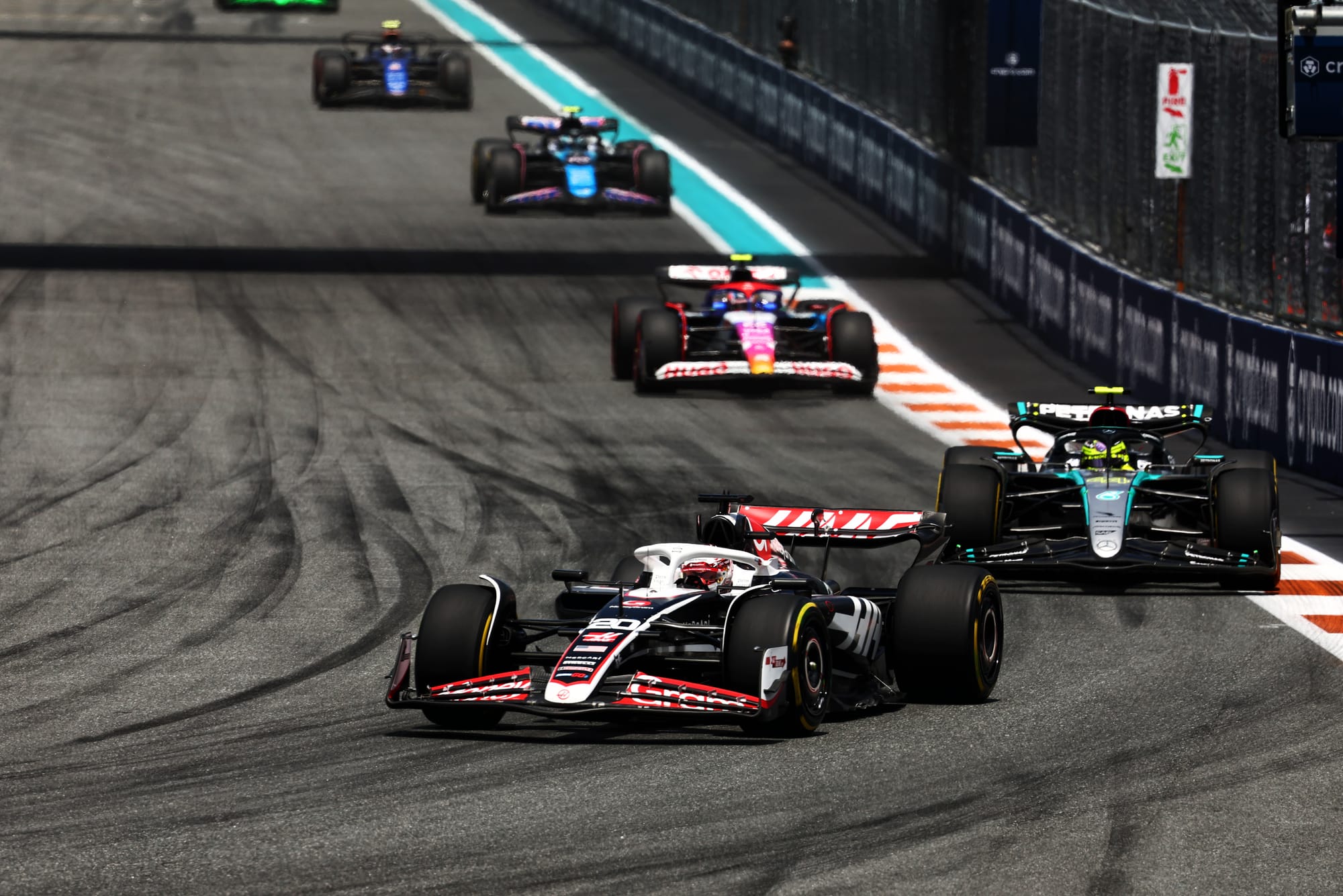Up Next

FIA stewards could apply exponentially harsh penalties for repeat offences of track cutting as early as Sunday’s Formula 1 race at Imola.
That's if there's widespread agreement between teams at the Emilia Romagna Grand Prix on a course of action that would prevent tactics such as those deployed by Haas driver Kevin Magnussen in Miami.
Magnussen amassed a combined total of 35 seconds of post-race time penalties, while acting as a rear gunner for team-mate Nico Hulkenberg in the Miami sprint race.
Magnussen admitted the penalties were “well-deserved” but necessary to prevent Mercedes driver Lewis Hamilton from getting ahead and potentially overhauling his team-mate.
McLaren team principal Andrea Stella was among those who criticised Magnussen, suggesting a race ban would be appropriate on the basis that penalties “should be exponential”.

The FIA is keen to prevent such situations in future by ensuring repeat offences are hit with bigger penalties. This will be discussed in the Friday team managers’ meeting at Imola with a view to this policy being applied in Sunday’s race should it gain widespread support.
The Race understands that this will not lead to immediate drive-throughs being issued and first offences will be dealt with as normal.
That will usually mean 10-second penalties, which are either served at the driver’s next pitstop or post-race, are the norm.
However, the stewards felt bound in Miami to issue repeat identical penalties as a result of the long-term push for consistency so the FIA believes this can be tackled by giving them licence points (12 points required for a race ban) to punish repeat offences more aggressively.
There are no plans to change the policy on ceding positions despite some drivers - like Magnussen himself - arguing this should be done in order to move cars out of positions they shouldn’t be in more quickly.
"I think the best thing would be for the FIA to tell us to give back positions," said Magnussen. "And then the consequences of not doing that being harsh, like really harsh, so you make sure that that's been done."
This is undesirable for the FIA because it would require real-time stewards' monitoring for all 20 cars. Instead, teams can voluntarily move cars out of positions after track-cutting offences - and this is taken into account when penalties are being considered.
The key to the feasibility of this is accepting the principle that FIA stewards should be able to use their judgement to consider motive and the race situation when it comes to such offences. This should prevent ‘honest’ track cutting offences and mistakes from being punished overly harshly, while also penalising – and ideally deterring – drivers and teams from attempting to deploy such tactics.
There is nothing preventing the proposed exponential penalties within the existing regulations given the available tariff of punishments. However, it would require a shift in the policies followed by stewards in an attempt to guarantee consistency in order for it to work.
That’s a welcome potential shift in mindset given the understandable desire for consistency has gradually restricted the stewards’ using their discretion and boxed them in when it comes to applying penalties. This too often leads to penalties that are either inadequate or overly harsh.
By allowing more room for interpretation and unique situations to be considered, this should allow the punishment to better fit the crime.
Hulkenberg: Magnussen was fighting for himself

While Magnussen himself has been very open in saying his intentions in the Miami GP sprint were eventually fully focussed on Hulkenberg's result and maximising the Haas team's points tally, the unofficial position from within the Haas team was that this wasn't welcome because of how extreme the driving was.
And Hulkenberg, for his part, has suggested that not only was Magnussen's help in building a buffer to Hamilton not required, but that it wasn't the primary motivation.
"Look, for me in Miami he was racing for P8 in the sprint, that's a point, for us that's true value and money," Hulkenberg said.
"I was not surprised that he was fighting the way he was, and it was not just for me. Probably a combination of both.
"But everyone knows Kevin Magnussen is one of the hardest guys to get by. I don't understand all the fuss around it, to be honest."
He added: "At that point I was already well ahead, and I would've secured my position, I had it safe anyway. I think it was more he was still fighting for himself personally, for that one point also."
This will have been true initially - but Magnussen's most aggressive move came when he was already aware of the 10-second sanction. Whether Hulkenberg knows that or not, his stance reinforces the view there is minimal gratitude within Haas for Magnussen's 'sacrificial' driving.





